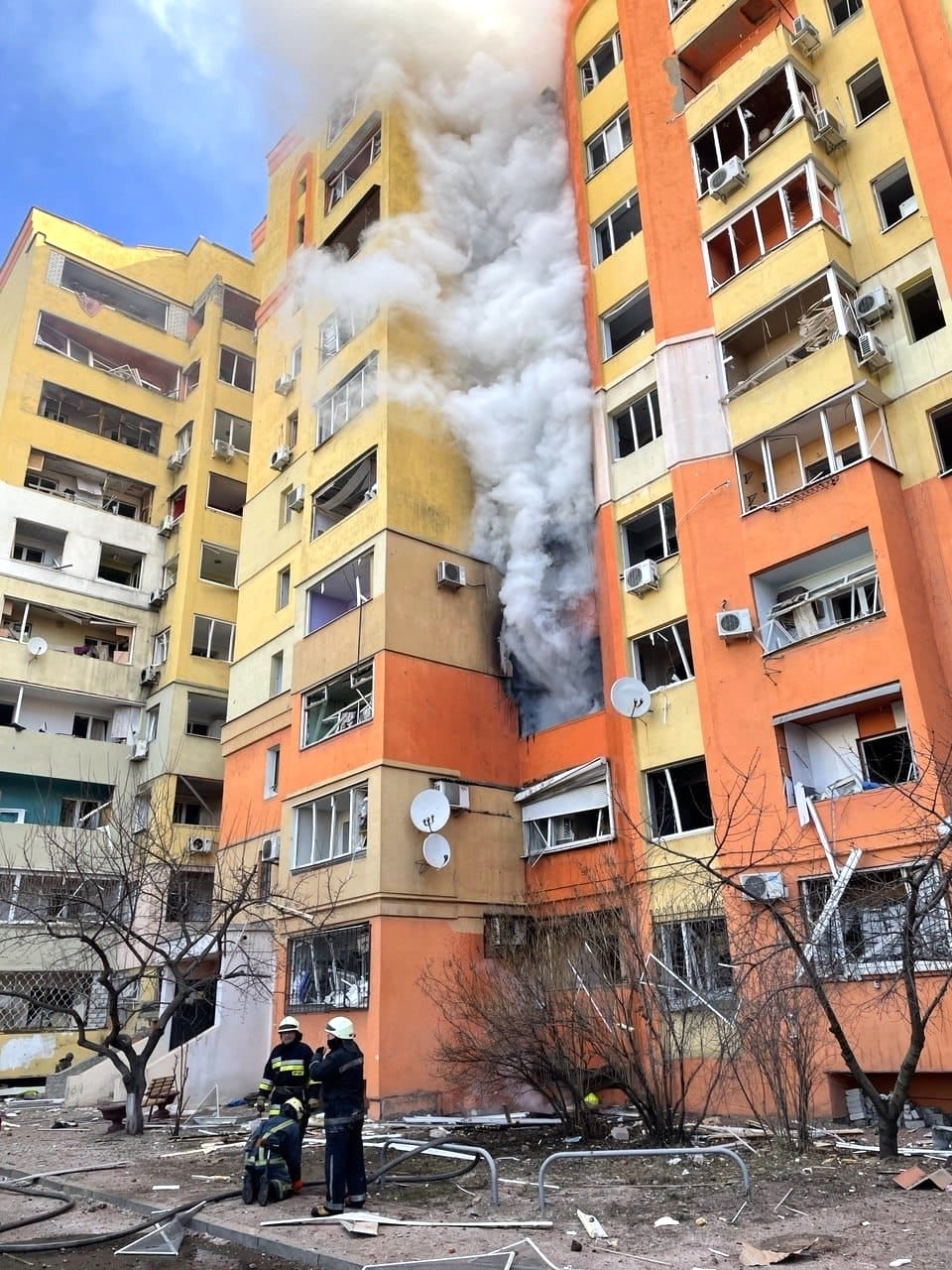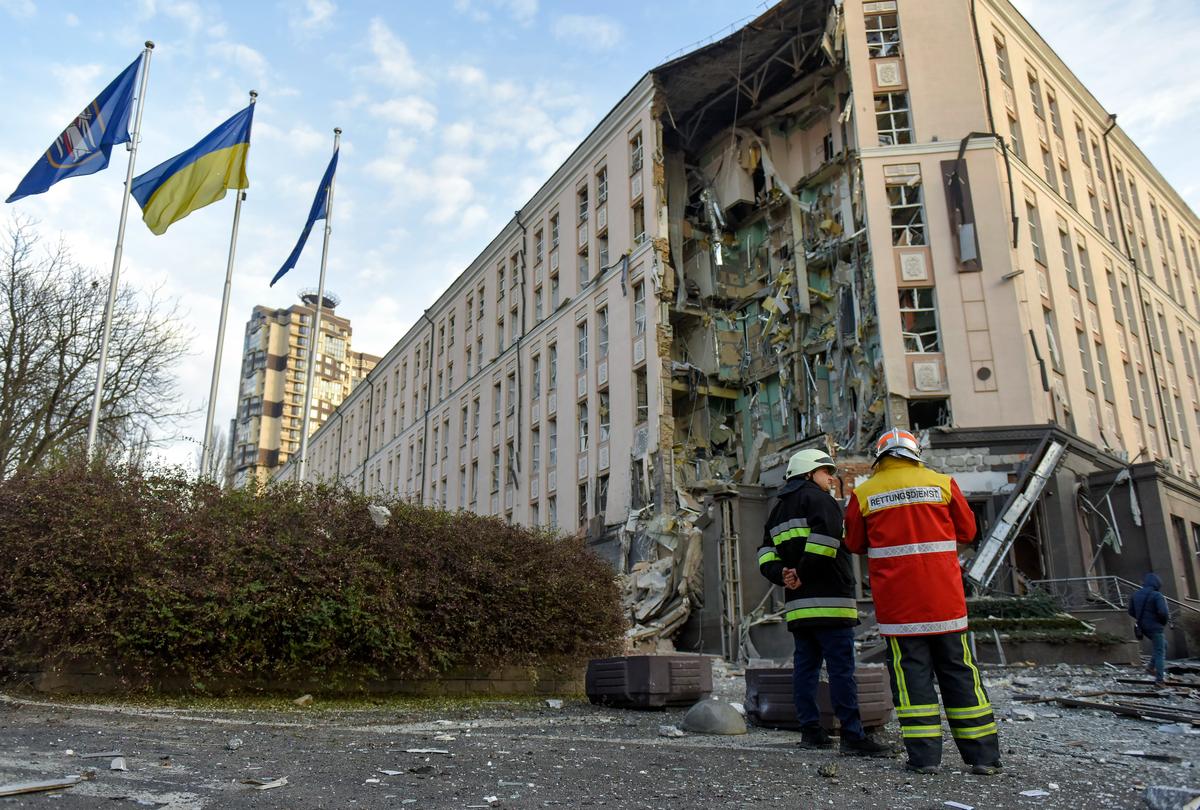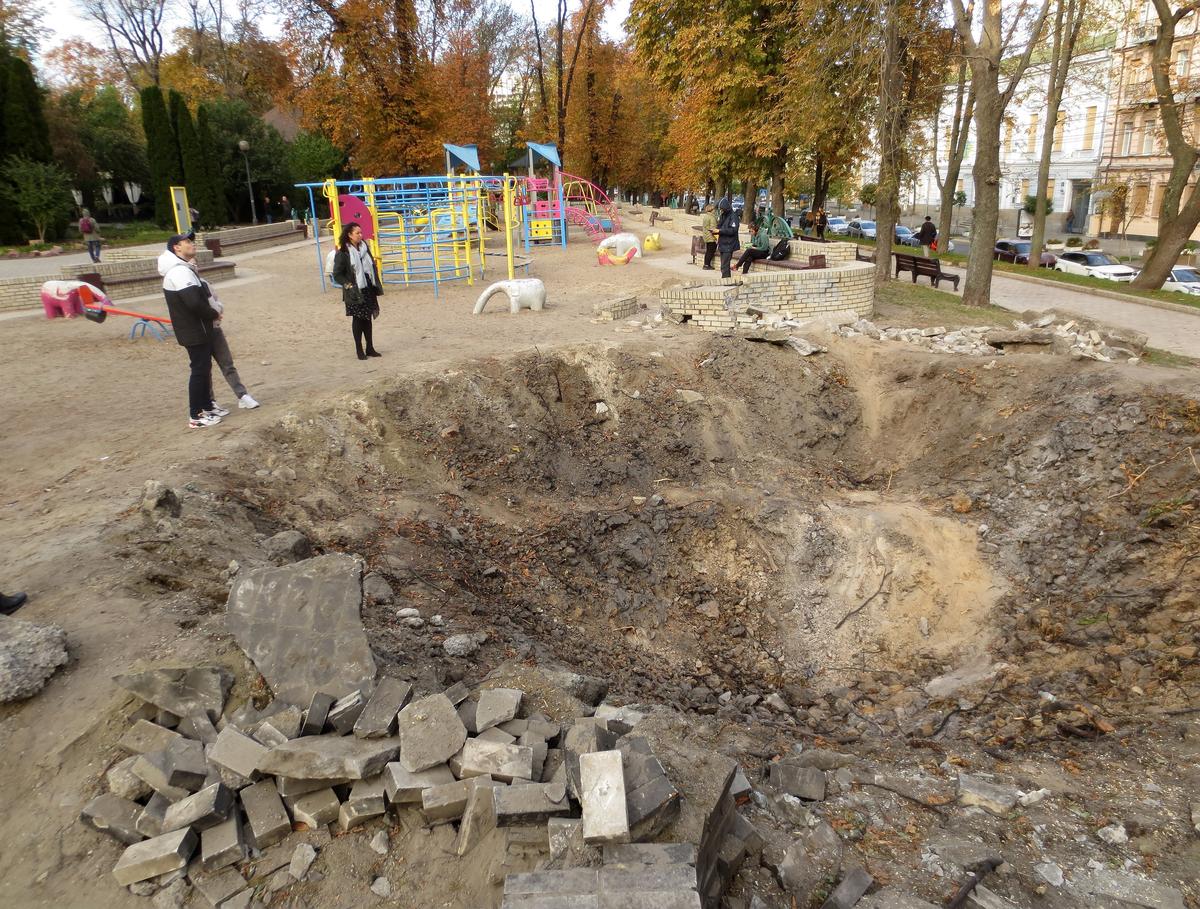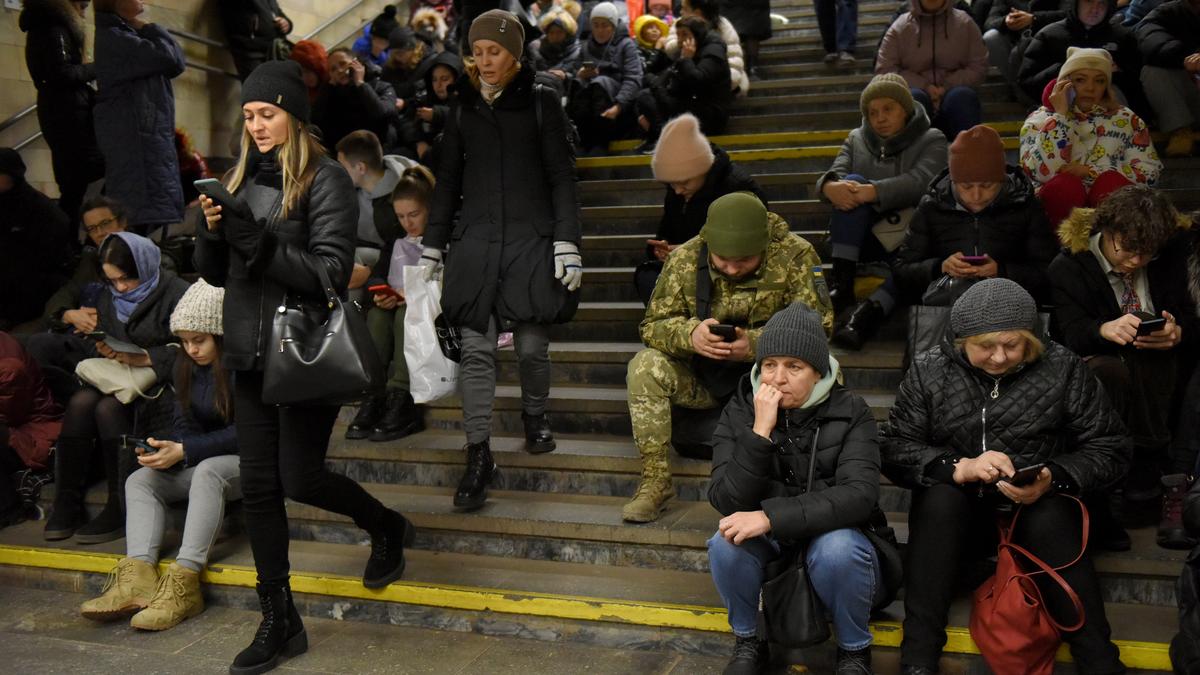It was just like a movie about a war starting. Sounds banal, but that is exactly how it was.
Three explosions — one in the distance, the second one closer, and the third one so close that the ground shook under our feet. We were awake. The TV was on. War had been looming over our heads for some time, but even so, the first siren was unexpected. “Are they … bombing Kyiv?” — “Yes.”
Thus began the first of 1,000 hours of air alerts that Kyiv has undergone since Russia’s full-scale invasion began. The city crossed the 1,000-hour threshold on 21 September (World Peace Day, incidentally), the early hours of which saw massive fresh air strikes on Kyiv, as well as on the cities of Kherson, Kharkiv, Cherkasy, Drohobych, and Rivno.
What happened in Kyiv that night? In one district, a residential building was hit — windows broken, women’s nightgowns covered in blood. The blood came from superficial cuts — no serious injuries this time. Not much to be happy about, one might have argued in peacetime. In another area, the wreckage of a downed Kh-101 missile fell on a car repair shop and a dormitory, injuring seven people. The debris also hit a residential building, with a nine-year-old girl among the wounded. In the city centre, a gas pipe was hit, but thankfully no fire broke out.
There is nothing new about this attack: just like last autumn, these are recon strikes aimed at zeroing in on Kyiv’s energy infrastructure.

Aftermath of attacks on Kharkiv, 18 March 2022. Photo: Wikimedia Commons, CC BY 4.0
Six strikes on Kharkiv — civil infrastructure damaged, three people injured. In Cherkasy, missile debris hit a hotel in the city centre, reducing several floors to a pile of rubble, causing a fire, and injuring dozens. The fire then spread to the neighbouring market, injuring passers-by.
For Kherson, the day was pure agony. A missile hit a dormitory; three people were killed, another four hospitalised with various injuries. Thirty minutes after the all-clear was given, sirens sounded again in Kyiv and several places elsewhere. Do you know what condensed hatred feels like?

Rescue workers stand in front of a hotel in central Kyiv following a Russian missile strike, 31 December 2022. Photo: EPA-EFE/OLEG PETRASYUK
Nights like the last are a stubborn reminder that we in Ukraine do not have a front and rear in the sense customary to warfare. The country is united in a common challenge.
Those who are not fighting must look after themselves as much as possible to avoid being an additional burden for the rescuers. This includes obeying the air-raid sirens. A nasty, swelling roar that one invariably wants to malign, it is nevertheless a friendly sound: the state warning us that it will now be fending off an enemy attack and asking us to help. Help means going to the nearest shelter, making sure there are two walls protecting you from the danger, not filming the work of air defence systems, and not posting pictures of damage in real time online. Easy-peasy compared to the challenges being faced by Ukraine’s soldiers.
Support independent journalism
I spent my first air-raid alert talking on the phone with what at the time felt like the whole world: friends, relatives, journalists. Adrenaline superseded fear, and my lack of prior experience superseded my common sense. During one call, I even went over to the glass balcony to allow my interlocutor to hear the noise outside better. I took some impressive photos and videos.
Only later did I come to understand that the bathroom was the one place where missiles couldn’t reach me. Especially if I hid underneath a thick blanket and surfed the blaze that was my news feed. Fortunately, the internet was working, albeit intermittently. A young and talented colleague from Moscow wrote me a desperate message that read: “We couldn’t do anything, forgive us!”
Another Muscovite, a middle-aged man whom I respect, comforted me in a letter saying that there was no shame in being afraid: one only had to try to stay alive and wait “for a short time”.
I still wonder exactly what he meant by that. Was he referencing the mantra that the Russian military would “take Kyiv in three days”?
Yesterday, after another attack, I strolled through Taras Shevchenko Park. Its designer benches were filled with retirees scrolling through their tablets and uniformed cadets sipping coffee. Street jazz was playing. People were taking advantage of the good weather, spreading blankets on the lawns and placing deck chairs next to the blossoming flower beds.

The playground in Kyiv’s Taras Shevchenko Park following a missile strike. Photo: Wikimedia Commons, CC BY-SA 4.0
Last October, a Russian missile — one of 83 launched against Ukraine that day — hit Shevchenko Park. On the same day, five people were killed and over fifty were injured in the capital alone. One of the missiles hit a children’s playground here. The shell hole resembled a crater fringed with burnt tree trunks. Fortunately, there was nobody there at the time, and the strike only damaged the windows and doors of the historic buildings down the street.
Now, you can’t tell what happened here — neither the landscape nor the faces of the passers-by bear any trace of the attack. The local defences have been bolstered, and that’s it. The layers of plywood and sandbags that envelope the monument to Ukrainian national poet Taras Shevchenko have been covered with a metal frame. And right at the top, next to the famed poet’s head, sprouting young poplars now grace the sandy mound.
Much like those poplars, we have grown into the war, learning to survive in it without breaking.
Kyiv
Join us in rebuilding Novaya Gazeta Europe
The Russian government has banned independent media. We were forced to leave our country in order to keep doing our job, telling our readers about what is going on Russia, Ukraine and Europe.
We will continue fighting against warfare and dictatorship. We believe that freedom of speech is the most efficient antidote against tyranny. Support us financially to help us fight for peace and freedom.
By clicking the Support button, you agree to the processing of your personal data.
To cancel a regular donation, please write to [email protected]

